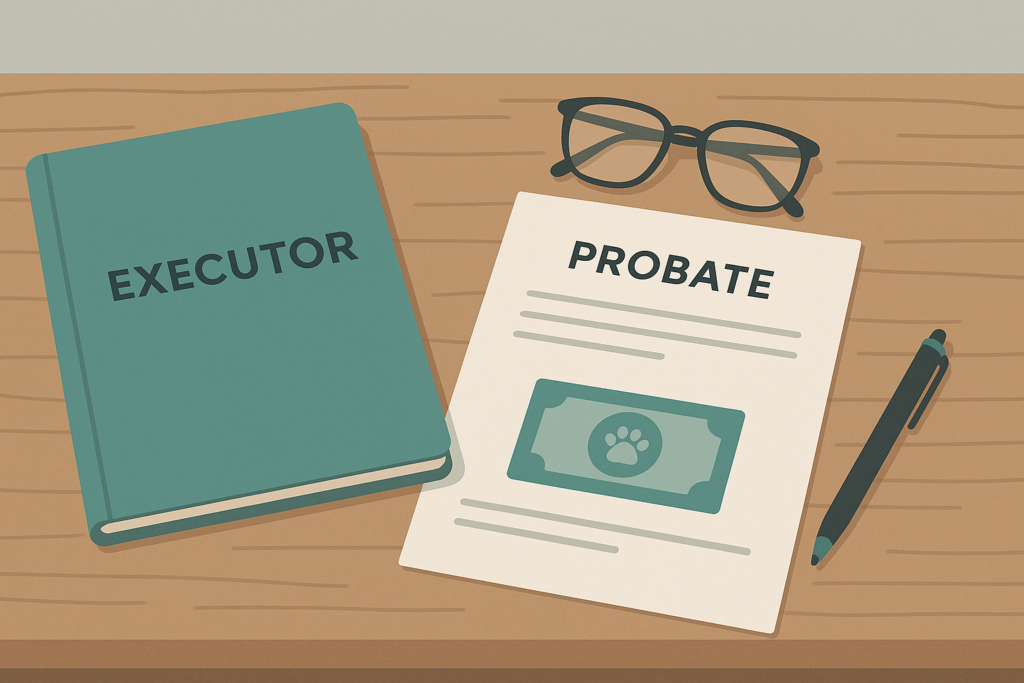Common Myths About Probate Law in Texas
Many people hold misconceptions about probate law, which can lead to unnecessary anxiety and confusion during an already challenging time. One prevalent myth is that all estates must go through probate, but this is not true; certain assets can bypass the probate process entirely, such as those held in a living trust or accounts with designated beneficiaries.
Understanding these myths is crucial for individuals navigating estate planning. For example, some believe that probate is always a lengthy and costly process, but with proper planning and the right legal guidance, it can be streamlined significantly. Educating oneself about these myths can empower individuals to make informed decisions regarding their estate plans.
How to Choose the Right Executor for Your Estate
Choosing an executor for your estate is a critical decision that can significantly impact how smoothly your affairs are managed after your passing. The executor is responsible for ensuring that your wishes are carried out according to your will, which includes settling debts, distributing assets, and handling any disputes that may arise.
When selecting an executor, consider factors such as their financial acumen, trustworthiness, and willingness to take on the responsibilities. It’s also advisable to discuss your choice with the individual beforehand to ensure they are prepared for the role. A well-chosen executor can help facilitate a smoother probate process and honor your legacy effectively.
Understanding the Role of a Probate Attorney
A probate attorney plays a vital role in guiding families through the complexities of the probate process. They provide legal advice, assist in filing necessary documents, and help navigate the often emotional landscape of settling an estate. Their expertise can significantly reduce the stress associated with probate, ensuring that all legal requirements are met efficiently.
In Texas, hiring a probate attorney can also help in addressing disputes among heirs, managing creditor claims, and ensuring that tax obligations are fulfilled. With their knowledge of state laws and procedures, probate attorneys can help expedite the process and avoid common pitfalls that can lead to delays or complications.
Key Steps in the Estate Planning Process
Estate planning is a proactive approach to managing your assets and ensuring your wishes are carried out after your death. The key steps include assessing your assets, deciding on beneficiaries, and determining how you want your estate to be distributed. Additionally, it's essential to consider setting up a will or trust to outline your desires clearly.
Furthermore, regular reviews of your estate plan are crucial, especially after significant life events such as marriage, divorce, or the birth of a child. Keeping your estate plan updated ensures that it reflects your current wishes and circumstances, ultimately providing peace of mind for you and your loved ones.
Common Myths About Probate Law in Texas
Many people hold misconceptions about probate law, which can lead to unnecessary anxiety and confusion during an already challenging time. One prevalent myth is that all estates must go through probate, but this is not true; certain assets can bypass the probate process entirely, such as those held in a living trust or accounts with designated beneficiaries.
Understanding these myths is crucial for individuals navigating estate planning. For example, some believe that probate is always a lengthy and costly process, but with proper planning and the right legal guidance, it can be streamlined significantly. Educating oneself about these myths can empower individuals to make informed decisions regarding their estate plans.
How to Choose the Right Executor for Your Estate
Choosing an executor for your estate is a critical decision that can significantly impact how smoothly your affairs are managed after your passing. The executor is responsible for ensuring that your wishes are carried out according to your will, which includes settling debts, distributing assets, and handling any disputes that may arise.
When selecting an executor, consider factors such as their financial acumen, trustworthiness, and willingness to take on the responsibilities. It’s also advisable to discuss your choice with the individual beforehand to ensure they are prepared for the role. A well-chosen executor can help facilitate a smoother probate process and honor your legacy effectively.
Understanding the Role of a Probate Attorney
A probate attorney plays a vital role in guiding families through the complexities of the probate process. They provide legal advice, assist in filing necessary documents, and help navigate the often emotional landscape of settling an estate. Their expertise can significantly reduce the stress associated with probate, ensuring that all legal requirements are met efficiently.
In Texas, hiring a probate attorney can also help in addressing disputes among heirs, managing creditor claims, and ensuring that tax obligations are fulfilled. With their knowledge of state laws and procedures, probate attorneys can help expedite the process and avoid common pitfalls that can lead to delays or complications.
Key Steps in the Estate Planning Process
Estate planning is a proactive approach to managing your assets and ensuring your wishes are carried out after your death. The key steps include assessing your assets, deciding on beneficiaries, and determining how you want your estate to be distributed. Additionally, it's essential to consider setting up a will or trust to outline your desires clearly.
Furthermore, regular reviews of your estate plan are crucial, especially after significant life events such as marriage, divorce, or the birth of a child. Keeping your estate plan updated ensures that it reflects your current wishes and circumstances, ultimately providing peace of mind for you and your loved ones.










